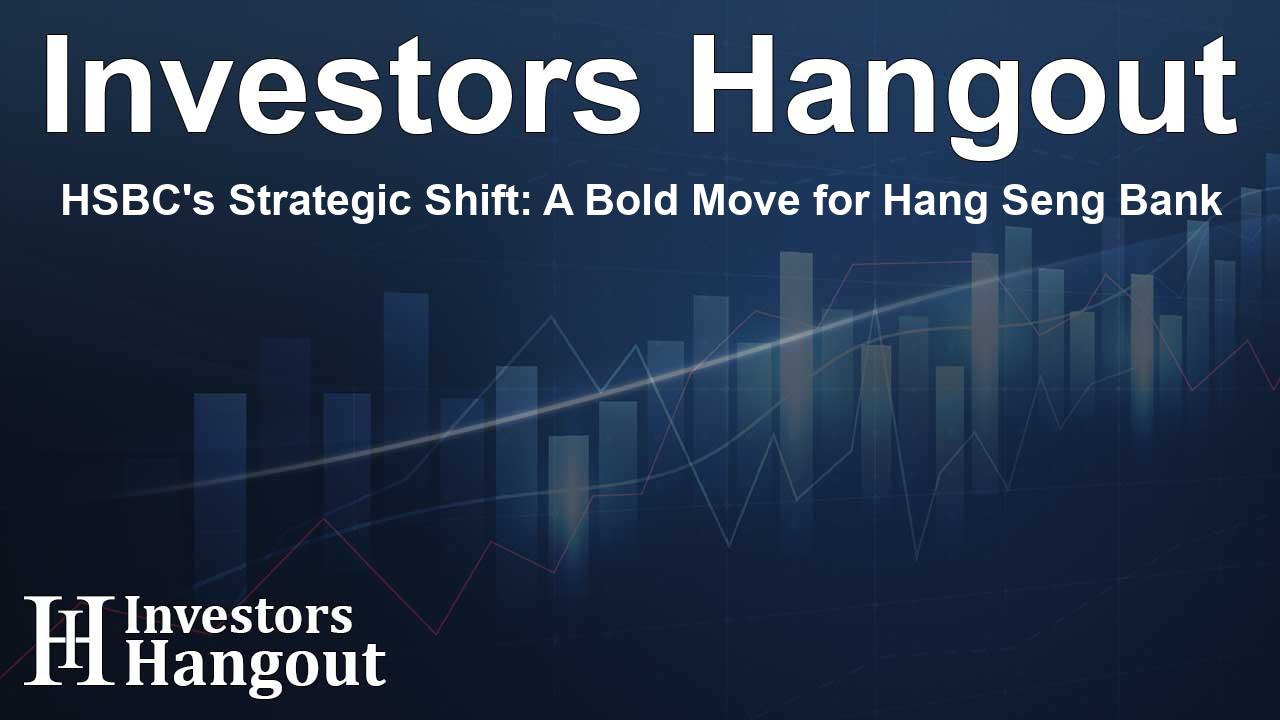HSBC's Strategic Shift: A Bold Move for Hang Seng Bank

HSBC's Market Movement and Takeover News
HSBC's shares in Hong Kong have taken a noticeable downturn recently, experiencing a decline of over 7% as the bank announced its intentions to privatize Hang Seng Bank, its majority-owned local entity. This significant move comes with a staggering valuation of HK$106.1 billion, equivalent to approximately $13.63 billion.
Understanding the Offer for Hang Seng Bank
The financial giant, already holding 63% of Hang Seng Bank, has proposed an offer to acquire the remaining shares at HK$155 each. This price represents a 30% premium compared to Hang Seng's closing share price just before the announcement. If this deal goes through, it could value Hang Seng at around HK$290 billion, translating to over $37 billion.
HSBC's Historical Context
HSBC, headquartered in the UK and recognized as Europe's largest lender, acquired Hang Seng Bank during a banking crisis back in 1965. This long-standing relationship underscores the significance of this proposed deal, especially at a time when Hang Seng is facing challenges due to Hong Kong’s property market downturn.
Impact on Stock Prices
In the wake of the announcement, Hang Seng Bank's shares witnessed a remarkable increase, soaring by 26.3% to reach HK$150.70. This surge highlights the market's optimistic outlook regarding the takeover proposal and the potential restructuring.
HSBC's Vision for the Future
Georges Elhedery, the CEO of HSBC, expressed enthusiasm about the acquisition, stating that it marks an exciting opportunity for the growth of both HSBC and Hang Seng Bank. Elhedery assured stakeholders that the takeover would retain Hang Seng's brand and heritage while strengthening its position within Hong Kong's economy.
Investment in the Hong Kong Economy
Elhedery also highlighted that this offer signifies a noteworthy investment in Hong Kong's future, showcasing HSBC's confidence in the local market and its strategic role as a connector between mainland China and international markets.
Overall Market Implications
The ramifications of this move extend beyond just HSBC and Hang Seng Bank; this strategic acquisition could alter dynamics within the Asian financial landscape. As the market observes these developments closely, potential impacts on regional competition and consumer sentiment will unfold in the near future.
Frequently Asked Questions
What is the proposed price per share for Hang Seng Bank?
HSBC has proposed to acquire the remaining shares of Hang Seng Bank at HK$155 per share.
Why did HSBC choose to privatize Hang Seng Bank?
The decision to privatize Hang Seng Bank aims to strengthen its operations and overall efficiency amid market challenges.
How did the market react to the announcement?
Following the announcement, shares of Hang Seng Bank surged by 26.3% to HK$150.70.
What historical connection does HSBC have with Hang Seng Bank?
HSBC acquired Hang Seng Bank during a banking crisis in 1965 and has since maintained a majority stake.
What does this move indicate about HSBC’s confidence in Hong Kong?
The acquisition proposal demonstrates HSBC's commitment to investing in and supporting the economic future of Hong Kong.
About The Author
Contact Henry Turner privately here. Or send an email with ATTN: Henry Turner as the subject to contact@investorshangout.com.
About Investors Hangout
Investors Hangout is a leading online stock forum for financial discussion and learning, offering a wide range of free tools and resources. It draws in traders of all levels, who exchange market knowledge, investigate trading tactics, and keep an eye on industry developments in real time. Featuring financial articles, stock message boards, quotes, charts, company profiles, and live news updates. Through cooperative learning and a wealth of informational resources, it helps users from novices creating their first portfolios to experts honing their techniques. Join Investors Hangout today: https://investorshangout.com/
The content of this article is based on factual, publicly available information and does not represent legal, financial, or investment advice. Investors Hangout does not offer financial advice, and the author is not a licensed financial advisor. Consult a qualified advisor before making any financial or investment decisions based on this article. This article should not be considered advice to purchase, sell, or hold any securities or other investments. If any of the material provided here is inaccurate, please contact us for corrections.
